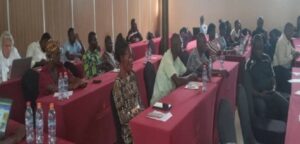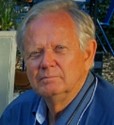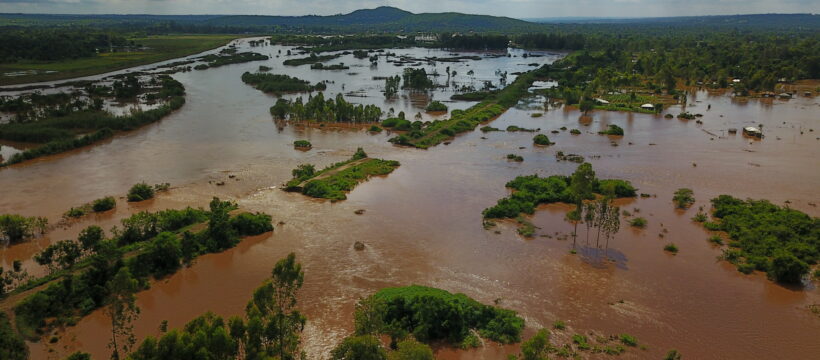A joint venture under the auspices of Tractebel is working on one of the largest irrigation projects on the Nzoia River in Kenya. Apart from the construction of irrigation infrastructure and flood protection, an agricultural training programme is also part of the project.
The Kenyan government, World Bank and the German development bank KfW agreed to continue financing the ambitious project, the construction work of which began at the end of 2017 and will now continue until September 2023.
Using a valuable resource effectively
The Nzoia is the largest tributary of Lake Victoria and the lifeline of the Siaya County project region, where agriculture is the most important economic sector. Main crops not only include rice, maize, millet, manioc and sweet potatoes, but also sugar cane, cotton and coffee. The infrastructure built in recent years ensures sufficient irrigation and effective flood protection.
Innovative technologies such as automatically operating regulation structures for water distribution will ensure a very good supply of the cultivated areas. New dykes can largely prevent flooding in the region and protect homes, infrastructure, livestock and food. They will reduce crop losses and poverty and help improve the health of the people in the region. At the same time, the project serves to protect ecologically sensitive areas and local ecosystems.
Training programmes
Our team of experts prepared the tender design and is currently involved in contract management and construction supervision. The current tasks are also focussed on training farmers on new agricultural practices and marketing strategies. Sensitisation starts with school classes and awareness is raised among the community. The comprehensive training programme also addresses the issues of gender-based violence, sexual abuse, exploitation and harassment, as well as violence against children.
The flood protection project was completed at the end of December 2022. 65 000 people are now protected against floods. By September 2023, the first 500 hectares of land will be irrigated, benefiting 1,500 farmers. By the end of September 2024, the entire irrigated area of approximately 4,000 hectares, which is cultivated by around 12,000 farmers, will be usable.

“Thanks to new technologies and training, farmers in many places have been able to more than double their rice yields while cutting seed use by about half. Our work leaves us with the good feeling that we have made an effective contribution to improving the living conditions of people, animals and nature,” Alex Hamming, Project Manager at Tractebel.

About Tractebel
As one of the world’s largest engineering companies, Tractebel offers pioneering strategies for a climate-neutral future. Around 5,000 employees develop engineering solutions for complex projects in the fields of energy, water and urban infrastructure. Tractebel customers benefit from 150 years of experience and the local know-how of experts in Europe, Africa, Asia, the Middle East and Latin America. Revenue generated in 2020 was € 581 million. Tractebel is part of the ENGIE Group, an international low-carbon energy and services company. www.tractebel-engie.com
Contact
Tractebel Engineering GmbH
Sabine Wulf, Head of Communications & CSR
Friedberger Straße 173
D-61118 Bad Vilbel
Phone: +49 (61 01) 55 – 0
info-de(at)tractebel.engie.com

